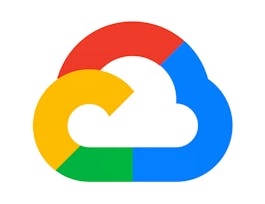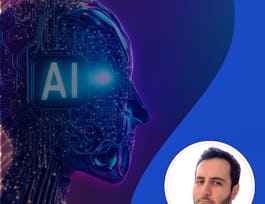The course "Automating Infrastructure - Chef for DevOps" is a comprehensive skill enhancement program designed for developers aiming to become proficient DevOps professionals. This course offers extensive training videos that are segmented into modules, which provide learners with easy-to-understand lab demonstrations, including video lectures, reading material, and quizzes.



Automating Infrastructure - Chef for DevOps

Instructor: Whizlabs Instructor
Sponsored by Louisiana Workforce Commission
Recommended experience
What you'll learn
Interpret knowledge about Fundamentals of Chef with DevOps tools.
Implement setup for Chef Infrastructure using AWS Services
Describe features of Chef-server and Chef-Client
Design and manage Recipes and Cookbooks
Details to know

Add to your LinkedIn profile
15 assignments
See how employees at top companies are mastering in-demand skills


Earn a career certificate
Add this credential to your LinkedIn profile, resume, or CV
Share it on social media and in your performance review

There are 7 modules in this course
Welcome to Automating Infrastructure - Chef for DevOps course. By enrolling in this course, you are taking the first step to kickstarting your career in advanced DevOps field. In the first week of the course. we'll learn the essentials of Chef Fundamentals. This course will help learners to analyze stages of DevOps lifecycle. We will also familiarise with Continuous Deployment and Continuous Integration tools in this week.
What's included
7 videos2 readings2 assignments1 discussion prompt
In the second week of this course, we'll learn about Chef DevOps and explore how Chef can help in DevOps Culture. We'll also describe the working of Chef Architecture. After identifying key Metrics of Chef, we'll end the module by exploring and determining the components of Chef.
What's included
8 videos1 reading2 assignments
In the third week of the course, we'll get an overview of Recipes and Recipes attributes. We'll understand how to organize resources with recipes. We'll also explore cokkbooks and its working. By the end of this week, we'll have information about how to create and manage cookbooks using knife utility.
What's included
12 videos1 reading2 assignments
In the fourth week of the course, we'll learn the concepts of Chef-client and Chef-server in a detailed manner. We'll also explore nodes and its working. y the end of this week, we'll be able to implement the installation of Chef Development Kit on Chef workstation.
What's included
5 videos1 reading2 assignments
In the fifth week of the course, we'll be able to explore information about users, groups, role and their working. We'll demonstrate the working of organization, users, groups and roles in Chef. Also, we'll build a recipe to deploy a local user account from data bags. By the end of this module, we'll be in position to describe Data Bags.
What's included
7 videos1 reading2 assignments
In the sixth week of the course, we'll be able to Illustrate AWS services such as EC2, VPC, Beanstalk, RDS and their working with Chef. We'll demonstrate working of MySQL and WordPress with Chef. By the end of this week,we wil perform Implementation of AWS ECR and ECS with Chef.
What's included
11 videos1 reading2 assignments
In the last week of this course, we'll perform the implementation of MySQL installation. We'll also implement the creation of Cookbooks in WordPress. This module will end with a demonstration of WordPress installation.
What's included
5 videos4 readings3 assignments
Instructor

Offered by
Why people choose Coursera for their career




Recommended if you're interested in Information Technology

Google Cloud

LearnKartS

Board Infinity

Coursera Instructor Network

Open new doors with Coursera Plus
Unlimited access to 10,000+ world-class courses, hands-on projects, and job-ready certificate programs - all included in your subscription
Advance your career with an online degree
Earn a degree from world-class universities - 100% online
Join over 3,400 global companies that choose Coursera for Business
Upskill your employees to excel in the digital economy


